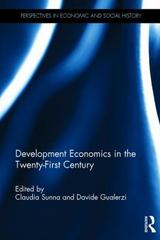Question
A positive trend is on the horizon between multi-residential real estate asset sales and its prospective purchasers. During the early stages of the pandemic in
A positive trend is on the horizon between multi-residential real estate asset sales and its prospective purchasers. During the early stages of the pandemic in March 2020, the Bank of Canada dropped the overnight rate to 0.25% from 0.75%, which allowed financial institutions to borrower at a low interest rate. Over the same period, prime rate was decreased to 2.45% from 2.95%. The decision to lower interest rates was designed to help Canadians during the uncertainty of the pandemic and allow for greater access to liquidity. In March 2022 to the present, the overnight rate and prime rate had dramatically increased to help curb high inflation. Accordingly, due to the increase of interest rates, there was an abrupt halt to multi-residential asset transactions. The number of sales transactions began to increase in the 2nd half of 2022. The reason for the increase of multi-residential sales transactions was heavily directed at the decrease in asset value of multi-residential buildings, which meant that a vendor's price expectations were considered to be out-of-date and unrealistic. The buyers noticed this trend and capitalized on obtaining a fair quality asset for a lower purchase price. Another contributing factor for the rise in sales transactions is that Canada Mortgage Housing Corporation (CMHC), an entity of the government that insures mortgages, had announced an increase to their Mortgage Insurance Premium (MIP) as of June 19, 2023. CMHC would be increasing their mortgage premium by 0.85% (85 basis points). The increase triggered an influx of applications to the mortgage insurer to avoid the increased premiums. Ultimately, due to the low property valuation, dictated by the market, and the want for a buyer to avoid higher insurance premiums, there is a positive correlation between multi-residential transactions and the proponents who are moving ahead with purchasing multi-residential assets.
A pair of economic variables with a negative relationship is that between the high demand in the automotive industry and Canadas' supply chain challenges. Many automotive parts are imported into Canada from different countries and assembled in Canada. During the pandemic, a delay of goods was seen at Canadian boarders. Additionally, the conflict in Ukraine dealt a large blow to Canadas' imports, specifically to iron, steel, and electrical machinery and equipment. It's also worth mentioning that on a global scale, Ukraine produces approximately 70% of neon gas, this is a gas that is used in semiconductor chips, found in cars and other electronics. Our supply chain challenges affect more than consumers, it also has a large effect on unemployment from lack of production. We could easily see layoffs in Canada if we continue to have import and export delays. With such a high demand in the automotive industry, there is a lack of sales because goods that are on back order still cannot be delivered into the consumers hands. Therefore, a negative correlation exists between the above-mentioned economic variables because of the finite amount of goods to the high demand of the automotive industry. Please comment on the text.
Step by Step Solution
There are 3 Steps involved in it
Step: 1

Get Instant Access to Expert-Tailored Solutions
See step-by-step solutions with expert insights and AI powered tools for academic success
Step: 2

Step: 3

Ace Your Homework with AI
Get the answers you need in no time with our AI-driven, step-by-step assistance
Get Started


